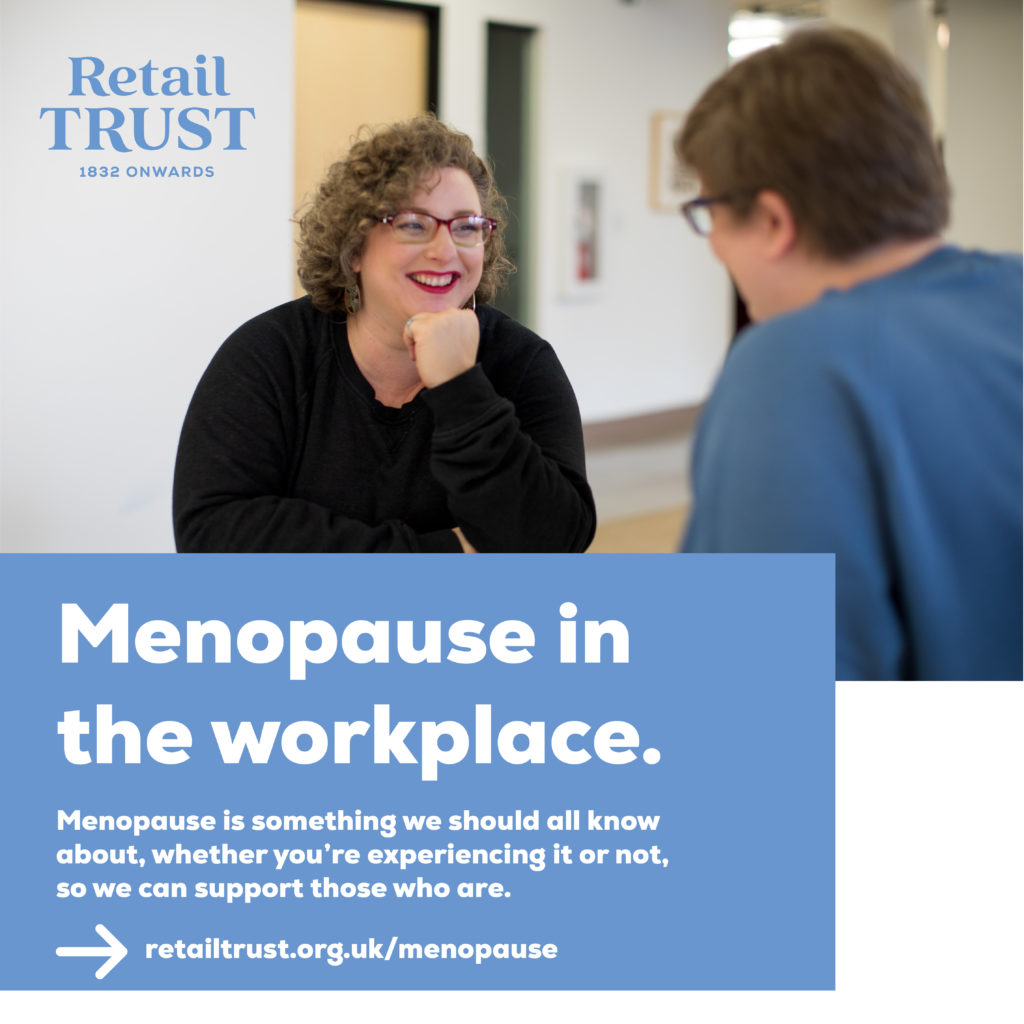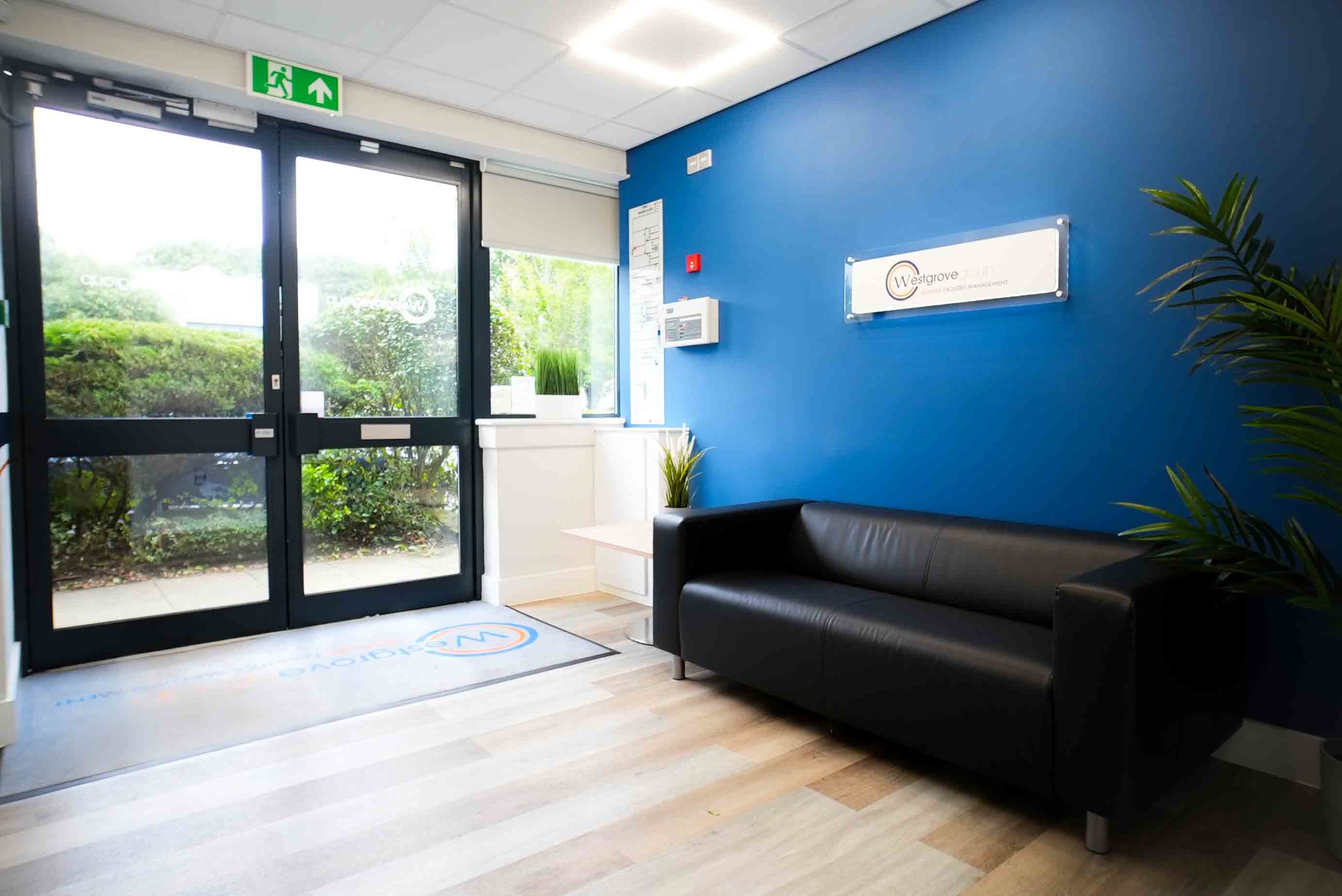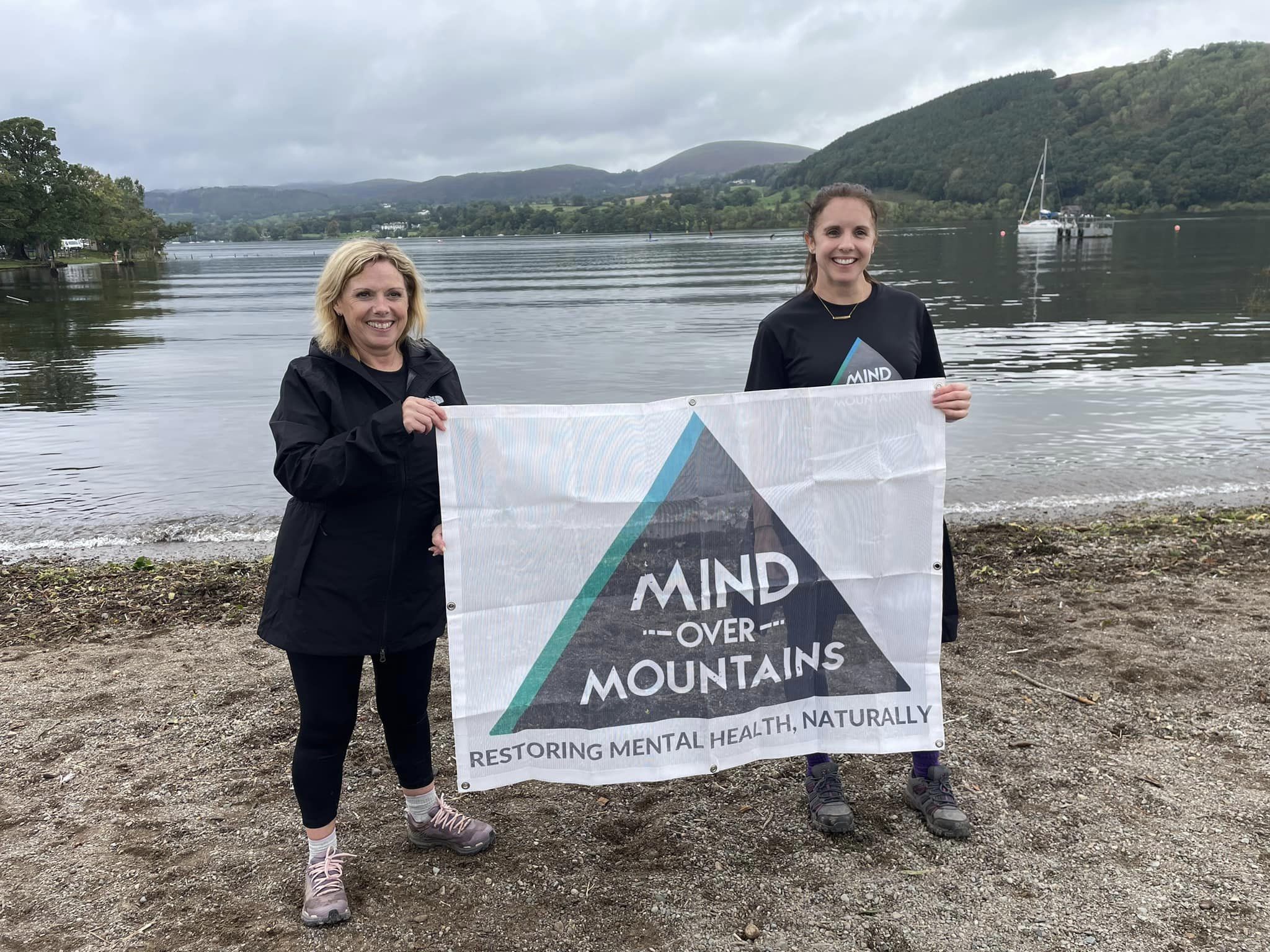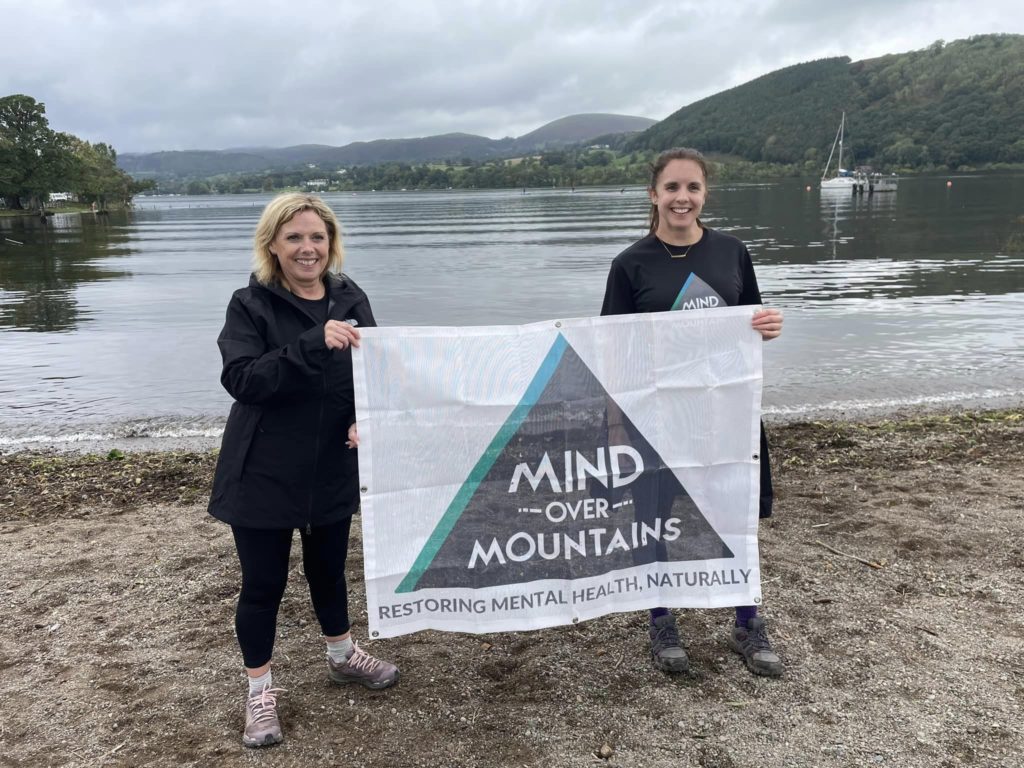
World Menopause Day takes place on the 18th October each year. It’s a day to raise awareness of the menopause and the support options available for improving health and wellbeing.
Through our partnership with the Retail Trust, we’re providing our colleagues with essential information on how to deal with menopause in the workplace and how to support colleagues, friends and family. Thankfully, menopause is becoming more widely talked about and understood, but we still have a long way to go in our acceptance, knowledge and openness around it.
Everything you need to know about the menopause
From why and when it’s likely to happen, to the symptoms you can expect and where to find support, we’ve got all the information you need to navigate the next stage of your life.
The great change of life, the internal furnace, reverse puberty, a super-soaker event… The nicknames given to the menopause don’t make it sound like a whole load of fun. But, despite the fact that nearly all women, trans men and some people who identify as non-binary, will go through the menopause at some point in their lives, most of us don’t know all that much about it.
Menopause is currently a hot topic, which means we’re all becoming better informed. But there’s also some contradictory information out there, which is leaving some women with more questions than answers. It can all feel a bit confusing (and scary – should you expect your bed to be soaked in a pool of sweat every night for the next ten years? And are you doomed never to have good sex again?).
So we’ve spoken to the experts and created a need-to-know guide to the menopause to demystify the process, and answer some of your most common questions. We can’t stop it happening – but we can help you through its challenges. Here we go…
Menopause: the basics
The menopause refers to your last period, when your ovaries stop producing oestrogen. This usually happens by the age of 51, but what we think of as menopause – including symptoms like hot flushes – is actually the peri-menopause, which happens at around the age of 46.
“The perception is that menopause occurs around the age of 50, which is actually the definition for being post-menopausal rather than peri-menopausal,” says Paula Briggs, Chair of the British Menopause Society. “During the peri-menopause, symptoms tend to be most extreme, because of fluctuating hormone levels.
“Our ovaries produce three hormones: oestrogen, progesterone, and testosterone. Oestrogen is the hormone that tends to make women feel well, so lack of oestrogen is what causes menopausal symptoms.
“One of the earliest signs that you’re peri-menopausal is a change in bleeding pattern – periods may become heavier, or the gap between them might become shorter or longer. The reason for that is your ovaries still have eggs, but it becomes more and more difficult for them to produce one to ovulate.
”Because you can still ovulate when you’re going through the menopause, you should carry on using contraception, ideally until you’re 55. If you’ve experienced a very clear menopause, in which your periods have stopped completely for at least 12 months, you should carry on using contraception for two years if you’re under 50, and one year if you’re over 50. However, it’s a good idea to speak to your GP before stopping contraception.”
What symptoms can you expect?
Symptoms can vary greatly (helpful, we know…) Some women might experience very few, and find them easy to deal with. Most, however, do find that symptoms of menopause have an impact on their lives to some degree. The most common signs to look out for are irregular periods, hot flushes, vaginal dryness, trouble sleeping, sexual problems, mood changes, forgetfulness, weight gain, headaches and joint pain.
Urogenital symptoms, such as vaginal burning or discharge, recurring urinary tract infections, and the need to urinate more often, can develop three to five years after your last period, so these issues might also be related to menopause, even if they don’t happen straight away.
A recent landmark survey of menopausal women revealed that the majority find at least one symptom of menopause ‘very difficult,’ with sleep, brain fog, and anxiety and depression among the most challenging. Yet despite this, 45% haven’t seen their GP about their symptoms.
“If you’re experiencing some of these symptoms and thinking, ‘Nothing else in my life has changed, what on earth is going on?’ our symptom checker is a really good start,” says Diane Danzebrink, founder of Menopause Support. “I think a lot of people suffer in silence, thinking, ‘It’s natural, I just have to get on with it.’ But there are ways of easing your symptoms, so if they’re having an effect on your quality of life, you should seek some help and support.
”For the vast majority of people, that first point of call is going to be your GP, but I’d always suggest that you do a bit of research first, to find out what you can expect, and what your GP can potentially offer.”
Almost a third of women who did see their GP had to go back several times before the cause of their symptoms was identified – which is why it pays to be clued up about what menopause looks like, and what options are available to you – even if you’re not quite there yet.
”A lot of people think of the menopause as just hot flushes, but there are so many other random symptoms,” says Andreina, 49. “When I went through early menopause at 38, sex was really painful, and that’s what hit me hard. I hadn’t had much time for that kind of thing after my two children were born, but the idea of that nice, fun element of my life being gone for good was devastating.
”I spoke to my doctor and was given medication (the delightfully named Vagifem) for it, which helped a lot. So if you experience something like this, I’d definitely suggest seeking help from your GP.”
Experiencing early menopause
As with most things in life, there might be an ‘average,’ but there’s no ‘normal,’ and some women enter peri-menopause before the age of 45. “One in a hundred women under the age of 40, one in a thousand under 30, and one in ten thousand under 20 will experience premature menopause,” says Danzebrink.
Premature menopause (and premature ovarian insufficiency) can happen for lots of reasons, including an early failure of the ovaries that can run in families, chronic illness, and treatments such as chemotherapy. Having your ovaries removed will trigger surgical menopause.
“I went through early menopause ten years ago,” says Ruth, 48. “In hindsight, I had a few of the symptoms: insomnia, night sweats, brain fog and dreadful mood swings. But I didn’t know what it was until I missed two periods and went to see my doctor.
“Luckily, my GP tested my hormone levels straight away, and referred me to a premature menopause clinic. For the next few years, I had regular check-ups with them, and lots of support getting on the right course of HRT.
”I’m sure it would have been much harder for me if, like most of the women attending the clinic, I’d really wanted children, but I don’t miss having periods at all, and as well as reducing my risk of osteoporosis, the HRT has really helped to balance my moods.”
To HRT, or to not HRT?
There has recently been a surge in conversations about menopause treatments, especially Hormone Replacement Therapy (HRT). There’s still a lot of confusion about who can have HRT, the different types available, and what their effects are. Because it’s such an important topic, we’ve created a dedicated HRT Q&A answering all your questions about what HRT is, how it works, and who can benefit from it.
“HRT is described by NICE as a first-line treatment for menopause,” says Danzebrink. “So essentially, that means it’s the most effective treatment for menopause symptoms. For the vast majority of those under the age of 60, the right HRT, in the right dose, for the right individual, will offer benefits that significantly outweigh risks.
“However, there are always caveats to that. There are a very small number of people for whom HRT is not necessarily going to be the first option. There will be people who are told they can’t consider HRT by GPs who, due to lack of training, are not up-to-date. Then there’s personal choice – some people may simply choose not to use it.
”There are lots of scary headlines flying about, so the most important thing is to make sure you access factual, evidence-based information. I would always point anybody who’s looking for that information to Women’s Health Concern, which is the patient arm of the British Menopause Society.”
“Women should be very careful about where they get their information from,” adds Briggs. “Menopause experts are proliferating due to a ‘gap in the market,’ and it’s so hard to tell whether information is accurate or not if you’re not a medical professional. I would advise women to look at well-recognised national organisations such as the NHS documentation, NICE, and the British Menopause Society.”
If you’re unsure about HRT, it’s a good idea to look into your options before seeing your GP. Our HRT Q&A details alternative prescription medications that can relieve symptoms of the menopause, including antidepressants and other prescription medications. But whether you’re taking medication or not, there are some changes you can make to your lifestyle to help ease your symptoms.
Embracing movement
Nurse, menopause expert, and founder of Midlifemakeover.co.uk Sam Palmer says that movement and exercise can make a huge difference to women experiencing symptoms such as weight gain and hot flushes.
“During peri-menopause, declining oestrogen can lead to a loss of bone strength, painful joints, weight gain and an increase in heart disease and some cancers,” says Palmer. “Movement and exercise have been proven to help with all these potential symptoms, as well as improve mood, reduce the occurrence of hot flushes and night sweats, and help prevent unwanted weight gain.
“In our 30s and early 40s, exercise often focuses on burning calories, but in menopause, exercise should be something that makes you feel good – and 30 minutes a day is enough! It’s also a good idea to focus on building muscle, which helps support bone strength.”
Palmer recommends including three types of exercise in your menopause movement regime, which she calls ‘Strength, Sweat and Slow.’
She says: “Aim for 15-30 minutes twice a week doing something that helps to build or maintain muscle – you can use weights, tin cans, bands, or even your own body weight. You can even squeeze it in in the form of movement ‘snacks’ during your day.
“Once or twice a week, for around 30 minutes, do something that makes you feel a bit sweaty and out of breath. Fast walking, jogging, cycling or dancing are all good options – and it shouldn’t be something you dread!
“Finally, find a slow, gentle movement that helps you to relax. The calming effect of yoga, walking in nature, dancing and swimming have been proven to have a positive effect on reducing menopause symptoms, especially anxiety. Aim for 30-45 minutes twice a week, if you can.”
Eating well and tackling stress
Palmer also recommends making some healthy tweaks to your diet to help ease menopausal symptoms. “Studies show that eating a good diet can help reduce symptoms such as hot flushes, night sweats, constipation, and unwanted weight gain, so a few simple changes can be a game changer,” she says.
“Menopause is not the time to go on restrictive diets or ban food groups, so start with a Mediterranean-style diet that includes protein at every meal, and lots of fresh vegetables and fruit. Adding in plant-based oestrogens such as flax seeds or soya beans, and going easy on the caffeine and alcohol, is also a great start.”
Trying to cut down on the stressors in your life can also help. “A lot of people now live very full, very 24/7 lives,” says Danzebrink. “So I think it’s a good opportunity to say, ‘OK, if this is happening to me, how can I best look after myself?’ And that includes looking at your stress levels.
“Women can often neglect to prioritise themselves, so I think menopause can be a bit of a wake-up call. Most people can’t change major things in their life overnight, so look at the micro changes you can make, such as delegating some tasks at home.”
Menopause doesn’t have to be mystifying. For more information on everything you need to know about HRT, and how to deal with the menopause at work, click here to read the other articles in our series.
For more information on the menopause, read our other articles in this series:
How to deal with the menopause at work

Content credit: Retail Trust






















